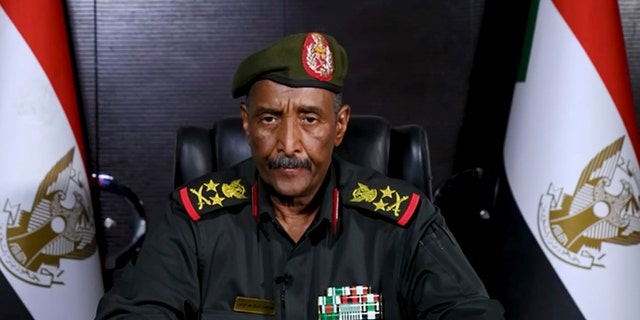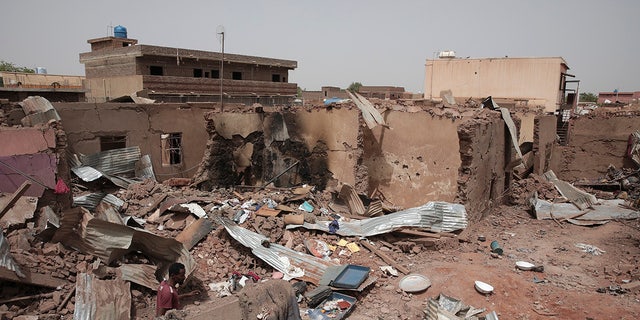Sudan’s rival military factions agree to cease-fire as tensions remain high
Sudan’s rival military factions agreed to a seven-day cease-fire while the country, including some Americans, are caught in between the competition for power.
Neighboring South Sudan announced the cease-fire and has offered to mediate in the conflict. Previous short-term cease-fires had been struck but were routinely violated by both the Sudan Armed Forces and the rival Rapid Support Forces (RSF). South Sudan’s foreign ministry said President Salva Kiir intends for the longer cease-fire to lead to exchanging envoys and eventual peace talks in order to bring the stalemate to an end.
Over 330,000 people are internally displaced and more than 100,000 have fled Sudan since fighting broke out, causing a major humanitarian crisis. The U.N. refugee agency says that more than 800,000 people could flee Sudan and trigger a full-blown humanitarian catastrophe. The growing refugee crisis could plunge the already unstable and impoverished region into further chaos.
“The entire region could be affected,” Egyptian President Abdel-Fattah al-Sisi told a Japanese newspaper on Tuesday as a Sudanese military envoy met Egyptian officials in Cairo.
AMERICAN WOMAN, DAUGHTER CAUGHT IN MIDDLE OF SUDAN FIGHTING AS FAMILY CALLS FOR HELP TO BRING THEM HOME
Clashes initially broke out in Khartoum on April 15 between the Sudanese armed forces led by Gen. Abdel Fattah al-Burhan and Gen. Mohamed Hamdan Dagalo, widely known as “Hemedti,” leader of the paramilitary RSF. The RSF grew out of the pro-government Arab militia known as the Janjaweed that committed mass atrocities and human rights violations in the Darfur region of Sudan in the early 2000s.

The two had been in an uneasy alliance since the 2019 overthrow of Sudan’s longtime dictator, Omar al-Bashir, who ruled the country since 1989. Together, the generals ruled the country with civilian groups that were influential in the mass protest movement that helped topple al-Bashir. Following his removal, it looked as if Burhan and Hemedti would commit to a civilian-led government in Khartoum.
Burhan, backed by his deputy Hemedti, staged a coup and dissolved the civilian-military power-sharing government in October 2021, ending the transition to civilian democratic rule.
NEARLY 1,000 AMERICANS EXTRACTED FROM SUDAN AS EVACUATIONS CONTINUE, STATE DEPARTMENT SAYS
The recent tensions center on the timetable and process by which Hemedti’s RSF would be integrated into the regular Sudanese armed forces as part of a deal to end the political deadlock brought about by the coup in 2021. Burhan wanted a two-year timeframe for integrating the RSF while Hemedti wanted a 10-year timeline.
The command structure of the armed forces was another point of contention. The ultimate goal was to have a unified military, with Hemedti falling under the command of Burhan.

One of the major issues that led to the October 2021 coup was the threat the civilian government might pose to some business interests. Burhan and the armed forces control a large swath of Sudan’s economy and its patronage networks are extensive. Hemedti also controls a vast network, including the gold mining industry, and has been able to enrich himself and his supporters.
Read the full article Here


